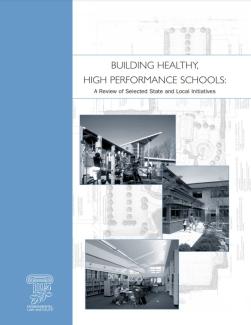
Green building involves the early and integrated consideration of environmental and health strategies such as superior indoor air quality, resource efficiency, daylighting, and sustainable materials. Green building can support the educational mission of school districts by promoting the health, learning, and productivity of students and staff, and by reducing utility costs and other facility expenses.
Over the past few decades, green building principles and practices have become more widely applied in public and private sector projects. This report describes early green building initiatives in three states and four school districts: California; Massachusetts; New Jersey; the Los Angeles Unified School District (CA); the Wake County Public School System (NC); the Elk River Area School District (MN); and the Edmonds School District (WA). The report discusses the context for these innovative and ambitious programs, their key elements, and the challenges addressed by each jurisdiction.
Overview of the Report
The examples described in the report illustrate several key elements of a green building initiative at the school district level: (1) building support for the initiative, (2) developing partnerships to leverage resources, (3) establishing a framework for incorporating high performance design strategies, and (4) evaluating the results. At the state level, important policy and program elements highlighted in the report include: (1) increasing state program capacity, (2) building local capacity, (3) establishing regulatory requirements for green building design and construction, and (4) providing financial support for school district projects.
In the years since these pioneering initiatives were implemented early in the 21st century, many more states and school districts have institutionalized green building practices through their policies and programs. An ELI Policy Brief, Healthy, High Performance School Construction, describes several of those state policies.
Explore other materials from ELI’s Indoor Environments Program.
© Environmental Law Institute®